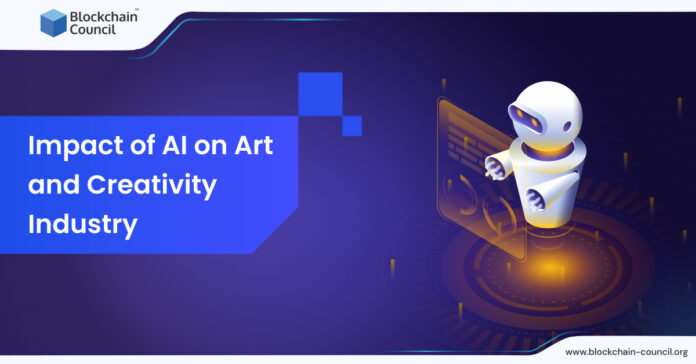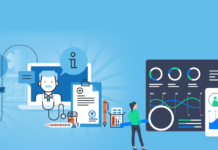Over the past few years, the remarkable progress in artificial intelligence (AI) and machine learning has revolutionized various sectors like healthcare, finance, and transportation. AI, which aims to simulate human intelligence in computers, has demonstrated its capability to handle tasks traditionally reserved for human minds, including perception, reasoning, and decision-making.
As AI continues to advance, a critical question arises: can machines truly showcase creativity, or is this a quality exclusive to humans? This inquiry has significant ramifications for the future of AI and its involvement in creative fields.
Creativity, often characterized by attributes like originality, fluency, flexibility, elaboration, and value, is considered a fundamental aspect of human cognition. To comprehend the potential of machines in this realm, it’s crucial to explore the various facets of creativity, AI’s capabilities, and the arguments both for and against machines being creative.
Understanding Creativity
Creativity encompasses the ability to generate innovative, valuable, surprising, and beneficial ideas or goods. It manifests in various domains, from art and science to everyday problem-solving. Psychological theories of creativity reveal it as a combination of individual traits, environmental factors, and cognitive processes. Different types of creativity include artistic, scientific, and everyday creativity, each with its unique characteristics and applications.
AI and Creativity
AI refers to computer programs capable of learning, reasoning, and solving complex problems traditionally within the realm of human intelligence. Machine learning, a subset of AI, involves training algorithms on vast datasets to identify patterns and make predictions. Notably, AI has already demonstrated its capacity to generate creative works, such as music compositions, visual art, and creative writing. For instance, AIVA, an AI program, has received accolades for generating original classical music compositions. The “Portrait of Edmond de Belamy,” created by the art collective Obvious using a machine learning algorithm, further exemplifies AI’s creative potential.
However, critiques of AI-generated creative works highlight their limitations. Critics argue that the lack of intentionality and emotion in the creative process, limited understanding and appreciation of cultural context, and the dependence on human input for programming and training AI systems hinder their ability to achieve true creativity. They also contend that AI-generated works may lack the authenticity and originality essential to genuine creativity.
Arguments For and Against Machines Being Creative
The debate on whether machines can be creative is multifaceted, with valid arguments on both sides.
Arguments for machines being creative:
Machines can generate novel and innovative ideas: By processing vast amounts of data and identifying patterns that humans may overlook, machines can produce novel and innovative concepts.
Machines can learn and improve over time: Similar to human beings, machines can improve their creative output as they gain more exposure to data and information, developing new skills.
Machines have the potential to push the boundaries of creativity: They can explore new possibilities and challenge conventional approaches to creative tasks.
Arguments against machines being creative:
Machines are reliant on human input and programming: This ultimately limits their creative output, constrained by the biases and limitations of their creators. They are not truly autonomous in their creative process.
Machines lack emotions and empathy: These are vital elements of human creativity, inspiring creative works and infusing depth and meaning that machines may struggle to replicate.
Machines lack intentionality and consciousness: Making it impossible for them to create works that are truly intentional or reflective of their own experiences and perspectives.
Implications of AI-generated Creativity
The implications of AI-generated creativity extend to various aspects, including the impact on creative industries, legal and ethical considerations, and future possibilities.
Impact on the Creative Industries
AI-generated creativity has the potential to disrupt traditional creative industries, such as music, art, and writing, by offering innovative ways to create and consume content. AI-generated content can reduce the cost and time associated with producing creative works, making creativity more accessible to a broader audience.
Legal and Ethical Considerations
Ownership and copyright issues related to AI-generated content remain uncertain and require legal clarification. The potential for AI-generated content to replicate existing works or perpetuate biases and stereotypes raises ethical concerns that need to be addressed.
Future Directions and Possibilities
AI-generated creativity is likely to become more sophisticated and autonomous in the future, leading to new and exciting possibilities for creative expression. The integration of AI and human creativity could result in collaborative and hybrid forms of creative work that combine the strengths of both humans and machines.
Unlocking Creative Potential: The Significance of AI Certification
In the evolving landscape of AI and creativity, obtaining an AI expert certification holds enormous significance. Whether you aim to be an AI developer or an AI chatbot specialist, these certifications provide a solid foundation for a career in the dynamic field of artificial intelligence.
What is AI Certification?
AI certifications validate an individual’s expertise in the field of artificial intelligence. They serve as a benchmark for one’s proficiency in AI and enhance credibility in the ever-expanding creative industries.
AI certification courses offer comprehensive training, equipping individuals with the knowledge and skills required to navigate the complexities of AI technologies. Furthermore, AI certification exams serve as a benchmark for one’s proficiency in AI, enhancing credibility in the ever-expanding creative industries.
As we contemplate the role of AI in pushing the boundaries of creativity, acquiring AI developer certification is not just a step forward, it’s a leap toward shaping the future of innovation and artistic expression.
In conclusion, the question of whether machines can be creative is a complex one with valid arguments on both sides. While AI has shown the ability to generate creative works, the essence of creativity and the role of human intentionality and consciousness in the creative process suggest that true creativity may still be a uniquely human trait. However, the integration of AI and human creativity holds the promise of new and exciting possibilities for creative expression. It is imperative to carefully consider the potential benefits and drawbacks of AI-generated creativity as we continue to explore this technology’s potential.
For those seeking to explore the world of AI certification, Blockchain Council offers a platform that provides prompt engineer certification. These certifications cater to individuals looking to become AI chatbot specialists and certified chatbot experts, arming them with the knowledge and skills needed to excel in the dynamic field of artificial intelligence. In an era where technology and creativity intersect, acquiring AI chatbot certification from a reputable platform like Blockchain Council becomes a vital step toward staying ahead in this evolving landscape.









